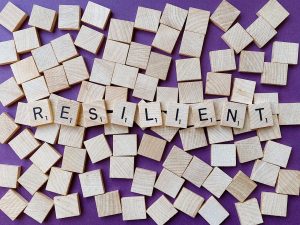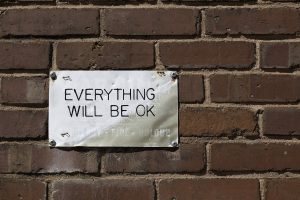Are you sitting comfortably? Welcome to my series of podcasts that will help you to navigate those inevitable difficult events at work that are part of being a manager.
Today I want to talk about how to build resilience at work.
The World Health Organisation has called stress the “global health epidemic of the 21st century.” We live in a society where we are constantly available, we’re always on the go, and we’re juggling demanding work life with an equally demanding home life. So it’s little wonder that many people are at risk of burning out due to stress.
A 2014 survey of 100,000 employees found that employee depression, stress and worry accounted for 82.6% of those claiming Employee Assistance support.
Increasing levels of workplace stress are a real concern, as stress has severe adverse effects on employee wellness and productivity.
So can stress ever be good?
Some types of stress can motivate us to perform better and make us more productive. This type of stress tends to be temporary, but it’s when stress is prolonged that it can create some serious problems for our mental and physical health.
This unhealthy stress adversely affects the individual success and that of the organisation.
The Global Corporate Challenge study looked at over 1.5 million employees across the world over 12 years and found that 63% of employees who classed themselves as ‘extremely stressed’ reported above-average productivity, but this rose to 87% among those who reported feeling no stress at all. The study also found that 77% of the extremely stressed employees reported above-average levels of fatigue, which is an early indicator that someone is heading towards burnout.
So what is resilience and how can we develop it?
Building resilience reduces the risk of burnout and suffering from stress. Resilience is the ability to bounce back from problems and remain determined to succeed even when it’s tough. The good news is that no one is born resilient, resilience can be learned.
Here are some tips on how you can build resilience even when you’re under a lot of stress, coping with increasing demands, and constant change.
Practice mindfulness: Research has shown that mindfulness provides the clarity needed to make the right decisions, solve problems, and be less reactive to situations. It’s also been shown to reduce stress and improve resilience and engagement. It has real potential to make workplaces happier, healthier and more productive places to be. Why not consider introducing mindfulness workshops and training into your organisation?
The next resilience tip is to deal with one thing at a time: Don’t multitask as this makes you less effective and productive, more stressed and more prone to being distracted. Instead, focus on one task at a time and get the most mentally taxing jobs out of the way first.
Take regular breaks: Balancing work tasks with regular breaks has been shown to improve energy, creativity and focus. Taking regular breaks to recharge throughout the day, even for a few moments can help to reduce the risk of burnout.
The next thing is to believe in your ability to solve problems: Every problem you come across won’t be the first one you have ever dealt with and it certainly won’t be the last. Be proud that you’ve solved problems before and you’ve learned from them. This will help you to overcome future challenges much more easily.
Remember at work, just as in life, relationships are important: Find a mentor who can listen to your problems and give you a different perspective and build a strong network of work friends so you can support each other.
Make plans but be pragmatic: Goals are important and they give us a sense of direction. Try to do one thing each day that will take you closer to your goals but be flexible. Be prepared for the fact that you might have to take another route to where you want to be than you had planned, but who knows where a different path might lead? You know the saying that the only constant in business is change? It’s very true and being flexible and adaptable will help you to see change as a positive thing and not as a problem.
Look after yourself: Eating well, taking regular exercise, and getting enough sleep all contribute to our overall wellbeing and our resilience. Your job role may be important, but is it more important than your health?
Check your thoughts: Watch out for tendencies towards negative thinking or personalising when things go wrong. If you’ve had a stressful day and you start thinking “I’m so bad at my job” or “My manager hates me,” how do you think it will make you feel? It certainly won’t make you feel more resilient. And if you’ve crossed swords with others at work, remember that often bad moods or negative emotions are more to do with what’s going on with them rather than being about you.
Lastly, don’t blow things out of proportion: It’s difficult not to in the heat of the moment or when things seem bleak, but whatever is bothering you, is it going to be important in a few weeks’ time? The chances are that it’s not.
We can’t make stress disappear completely, but we can become more resilient to it. Businesses and individuals can benefit from a culture that encourages and supports resilience. A successful and profitable business and a healthy, resilient, and motivated workforce are not mutually exclusive.
I hope that you got some good tips from today’s podcast, and I’ll see you next time. for the next one in the series which looks at how to deal with attendance issues.
This is The People Mentor, signing off.






